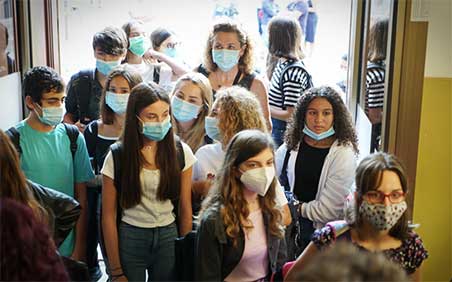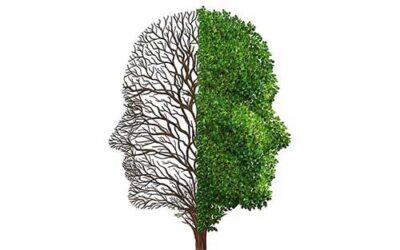 The COVID-19 pandemic has exacerbated a rising epidemic and that is the mental health crisis. Read on to learn how implementing a Social Emotional Learning (SEL) curriculum can positively impact our teens’ mental health.
The COVID-19 pandemic has exacerbated a rising epidemic and that is the mental health crisis. Read on to learn how implementing a Social Emotional Learning (SEL) curriculum can positively impact our teens’ mental health.
The COVID-19 pandemic has greatly affected our lives, especially K-12 students whose academics and social opportunities were completely interrupted by school closures with the sudden move to online learning.
Between the social distancing, school closures, social isolation, and financial hardships that followed COVID-19, our students endured tremendous amounts of stress and loss. Prior to COVID-19, studies showed that 20% of United States (US) adolescents had a diagnosed mental illness. What’s worse, suicide was the third leading cause of death in adolescents.
While we have yet to see the lasting effects that COVID will have on our teens and their mental health, early research indicates that teen mental health has been negatively impacted. According to a study published by the Kaiser Family Foundation (KFF), by October 2020, 31% of US parents reported that their child’s mental and/or emotional health was worse than before the pandemic.
The question remains, what can we do to support our teens?
While the adolescent mental health numbers are shocking and may indicate doom and gloom, there are a number of evidence-based solutions available to help build a strong foundation of social and emotional well-being for young people.
One such solution is the Collaborative for Academic, Social, and Emotional Learning (CASEL)’s social and emotional learning (SEL) framework.
What exactly is SEL? According to CASEL, SEL is the process through which young people and adults acquire the skills, mindsets, and knowledge to develop healthy identities, manage emotions, achieve goals, feel and show empathy, establish and maintain healthy relationships, and make responsible and caring decisions.
Science indicates that including SEL in core education curriculum combats mental health risk factors including reducing emotional distress, conduct problems, and drug use. There are also statistically significant associations between social-emotional skills in kindergarten and young adult outcomes of education, employment, criminal activity, substance use, and mental health.
SEL benefits students greatly across multiple domains including increased academic performance, life learning skills, positive attitudes, and positive social behaviors. Furthermore, kindergartners who displayed SEL competence were more likely to graduate from high school, complete a college degree, and acquire stable employment in young adulthood.
Now that we’ve covered the basics of SEL and its numerous benefits, what is CASEL’s framework?
 The SEL framework includes five core competencies which are self-awareness, self-management, social awareness, relationship skills, and responsible decision making. In order for SEL to be properly implemented, a systemic approach to learning is encouraged through SEL instruction and climate in classrooms, schoolwide practices and policies, authentic partnerships with families and caregivers, and aligned learning opportunities within communities.
The SEL framework includes five core competencies which are self-awareness, self-management, social awareness, relationship skills, and responsible decision making. In order for SEL to be properly implemented, a systemic approach to learning is encouraged through SEL instruction and climate in classrooms, schoolwide practices and policies, authentic partnerships with families and caregivers, and aligned learning opportunities within communities.
While each of the five competencies is equally important, we’re going to focus on how self-regulation makes decision-making less stressful for teens.
Self-regulation falls under the core competency of self-management, which CASEL defines as the ability to manage one’s emotions, thoughts, and behaviors across different contexts to achieve goals and aspirations. Some of these skills include delaying gratification, managing stress, and using motivation and agency to accomplish goals.
Self-regulation is a vital component of teen overall well-being as it helps to reduce stress and also improves the capacity to make decisions, which can be a difficult task for young developing minds.
While the evidence is strong for implementing SEL into the academic curriculum, unfortunately not all schools do so. And even when they do, they may not put a significant emphasis on SEL. You may be wondering how you can support your students and ensure they receive the life skills to decrease their risk for mental illness and increase their chances for long-term success.
Luckily, there are programs out there like ConnectU that are fully aligned with CASEL’s framework. The ConnectU Program is designed in collaboration with educators, principals, educational and child psychologists, and psychometricians, to support student learning and growth, inspire self-discovery and connection, and improve well-being through evidence-based programs.
Parallel to CASEL’s data, the ConnectU Program predicts positive outcomes for students such as improved well-being, increased GPA, and reduced dropout rates. These outcomes are achieved through emphasis on the following growth categories – resilience, confidence, self-compassion, adaptability, independence, social esteem, and thoughtfulness.
While the data shows that the adolescent mental health crisis is on the rise, there is still hope for our teens. Through adapting the SEL framework and creating an emphasis on overall well-being, rather than just academic success, educators can play an integral role in combating the impact of COVID-19 on teen mental health.
Are you sold on SEL but not sure where to start?
Visit ConnectU Program to request a free 6-week pilot demo and start implementing social and emotional learning into your curriculum today.






